Questionhi my name is chelsea i need help what do i need to buy for my horse? and how
do i know it is right for my horse?
AnswerHi Chelsea!
That is a really broad question! If you are talking about basic herdsmanship or the basic care and feeding of a horse here goes:
Lets start with lots of good fresh water every day. The number one killer of horses in colic. Making sure your horse has access to fresh water is critical. Water is an essential element necessary for life. Check your stock tanks or water source daily. For one horse a 25 gallon tank should be about right. Make sure it is clean and free of ice this time of year. In the summer, clean and fill daily!
Feed: Depending on the work load of your horse and if your horse is an easy keeper, that is holds his weight well on little feed, or a hard keeper, a horse that requires more feed to stay in good condition, you will have to balance a good feed ration of forage and concentrates. Forage is pasture, and hays. Again, depending on the needs of your horse a grass hay diet with some sort of concentrate (grain) that takes into account the vitamins and minerals the horse needs is appropriate. Some horses may need a legume hay such as alfalfa, to maintain good condition for the amount of work the horse is doing. Horses should be fed a minimum of 2X per day. Horses are grazers so they do better on several small meals throughout the day. Most boarding barns offer hay 3X's per day with some sort of concentrate morning and evening. If your horse is on pasture, you will still need to supplement with good quality hay and watch the condition of your horse closely. You should only see a hint of rib in the summer when the horse has a slick coat. In the winter with a full coat, your horse should carry a sufficient amount of flesh in order to stay warm and healthy. Even in the winter there should be a gloss to the coat that tells you your horse is getting the nutrition it needs. I don't think you need to know how to calculate the TDN (total digestible nutrients) just take a step back and look at your horse...too thin increase the hays first and then the concentrates. Too fat, decrease the concentrates and then the hays.
Worming: Again, another colic warning. Intestinal parasites are the most common cause of colic. Horses must be on a good de-worming program either with a daily wormer like Strongid C or a paste rotation de-worming program. If you choose a paste de-worming program the horse is given a paste wormer every other month. You rotate drugs the horse is given to eliminate a broad spectrum of parasites as well as avoiding drug resistance in the parasites. Ivermectin is a good broad spectrum de-wormer and depending on the health history of the horse is a good choice to begin your program.
Shelter: Horses need shelter from the wind and elements. A good three sided run in shed that is dry and offers protection from wind, and rain is critical. The shelter needs to offer dry footing in order to avoid some very nasty and painful fungal infections and hoof problems. Removal of manure will reduce the fly populations in the summer and bacteria in the winter.
Vet and Farrier Care: Have your new horse looked at by your vet. Starting out with a clean bill of health is a must. Your vet can also help you with basic health and vaccine recommendations appropriate for your area. Spring and fall vet checks and routine vaccines will keep your horse and all horses in general healthy. Next, your vet can also recommend a good farrier. Horses need to have their hooves trimmed every 4 to 6 weeks. With shoes, the horse can go 7 to 8 weeks between resets.
Training and Riding: You will need a good working headstall with a "D" ring snaffle, curb strap, and mecate rein. Saddles are a personal choice. I like a good wade tree saddle with in-skirt rigging, a Cheyenne roll and a night latch. This is a good choice for starting colts or for a rider just starting out. It will offer you a good deep seat and plenty to grab on to should the need arise. Also, a good rope halter with a 12' tree line lead is a gotta have for your horse.
This is basic care and fitting for any horse. Depending on your age a good 4-H program can really help you. Look for 4-H, or a pony club in your area. Also, beg, borrow, rent or buy the "Groundwork" DVD by Buck Brannaman and the "Back to the Beginning" DVD by Ray Hunt. These will give you an idea of what good horsemanship is all about. Start with these things and keep asking questions! I'm here to help. If I have used terms and concepts you do not quite understand, let me know and I will clarify.
Congratulations! Denise

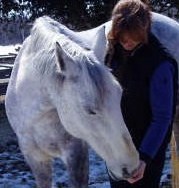 putting halter on
Questionhi,
Im probably going to sound like an complet
putting halter on
Questionhi,
Im probably going to sound like an complet
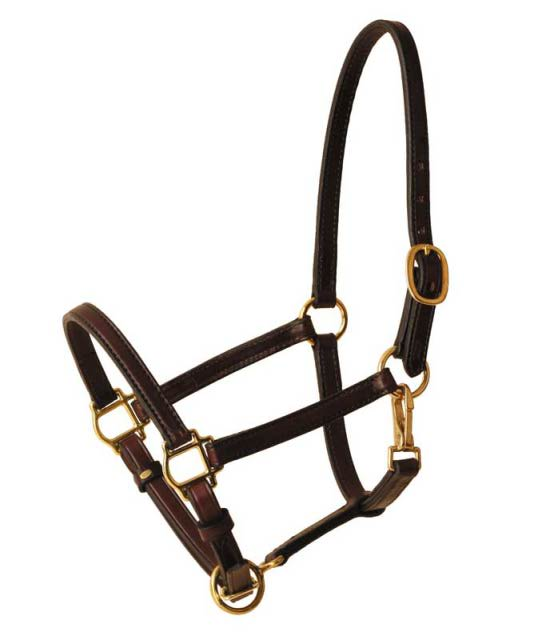 halter
Questionhalter
QUESTION: hello sir, may i know w
halter
Questionhalter
QUESTION: hello sir, may i know w
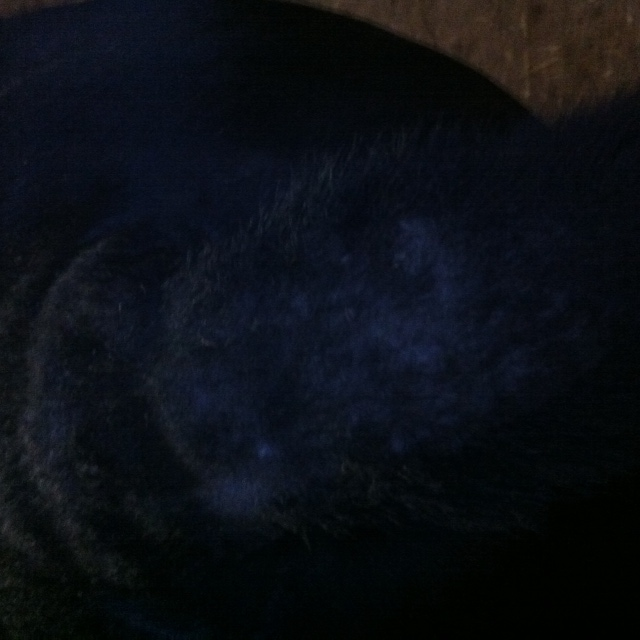 Itch/mane&tail
Question
Tail Tail 2
Hi Caitlin! Ive attac
Itch/mane&tail
Question
Tail Tail 2
Hi Caitlin! Ive attac
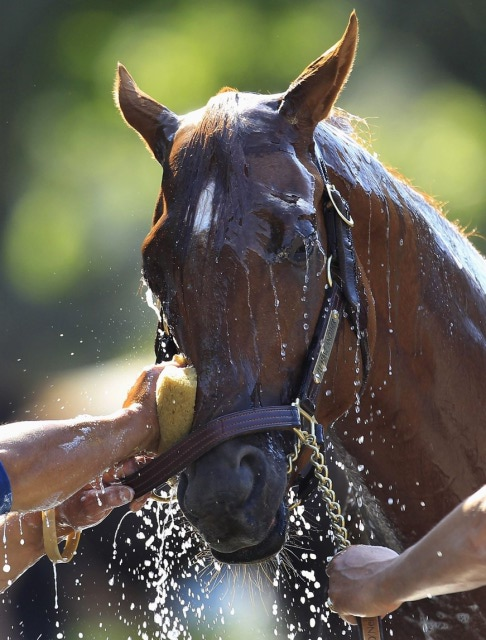 washing horse face softly
Question
washing horse face
hello maam, i believ
washing horse face softly
Question
washing horse face
hello maam, i believ
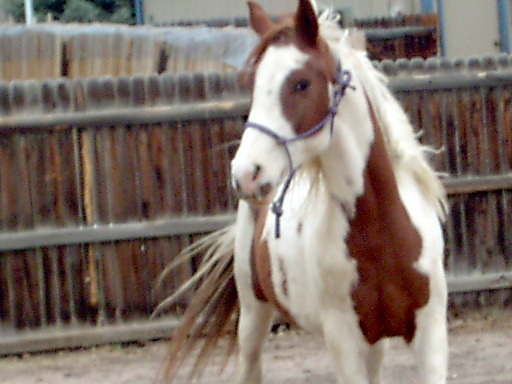 exited horse
Question
titan
hi Im Jessica, My horse Titan is an Ara
exited horse
Question
titan
hi Im Jessica, My horse Titan is an Ara